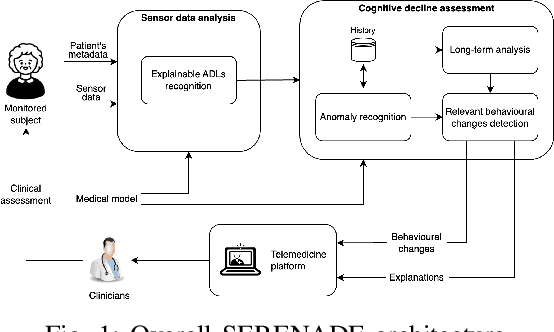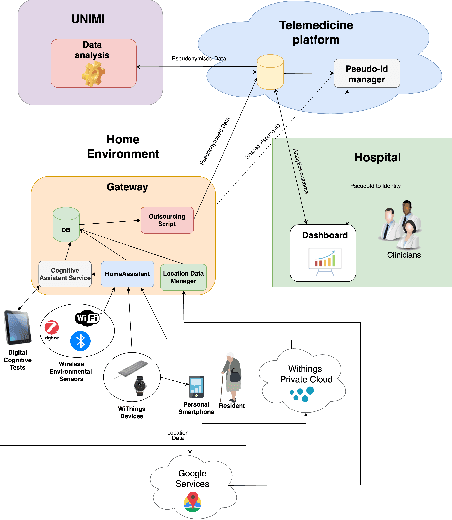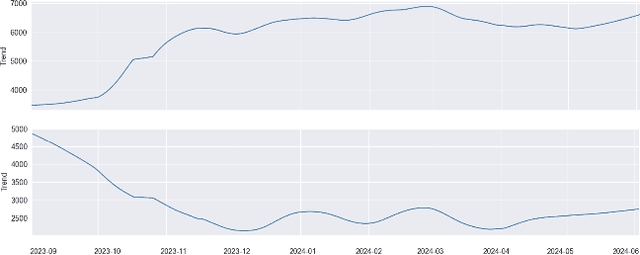Andrea Arighi
The SERENADE project: Sensor-Based Explainable Detection of Cognitive Decline
Apr 11, 2025



Abstract:Mild Cognitive Impairment (MCI) affects 12-18% of individuals over 60. MCI patients exhibit cognitive dysfunctions without significant daily functional loss. While MCI may progress to dementia, predicting this transition remains a clinical challenge due to limited and unreliable indicators. Behavioral changes, like in the execution of Activities of Daily Living (ADLs), can signal such progression. Sensorized smart homes and wearable devices offer an innovative solution for continuous, non-intrusive monitoring ADLs for MCI patients. However, current machine learning models for detecting behavioral changes lack transparency, hindering clinicians' trust. This paper introduces the SERENADE project, a European Union-funded initiative that aims to detect and explain behavioral changes associated with cognitive decline using explainable AI methods. SERENADE aims at collecting one year of data from 30 MCI patients living alone, leveraging AI to support clinical decision-making and offering a new approach to early dementia detection.
 Add to Chrome
Add to Chrome Add to Firefox
Add to Firefox Add to Edge
Add to Edge